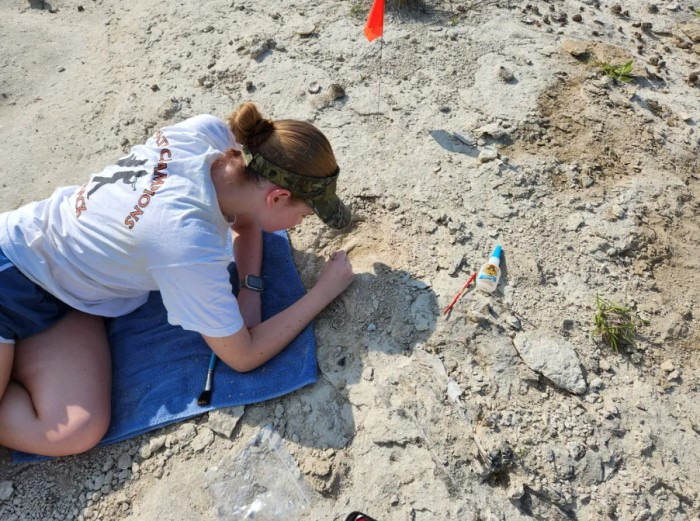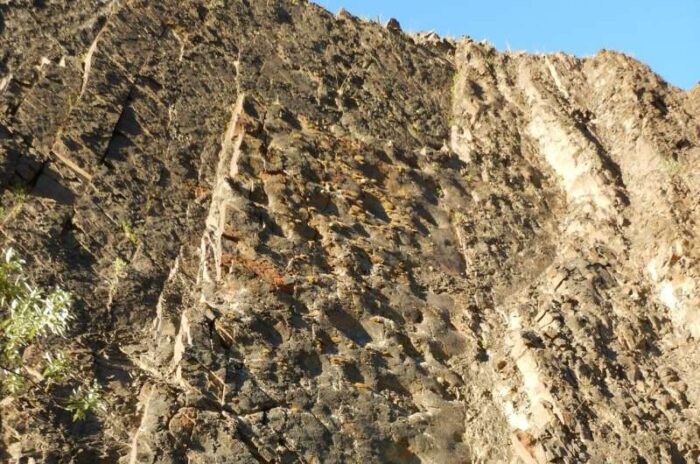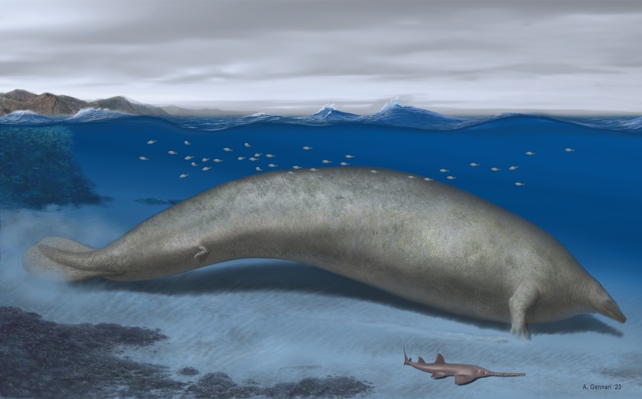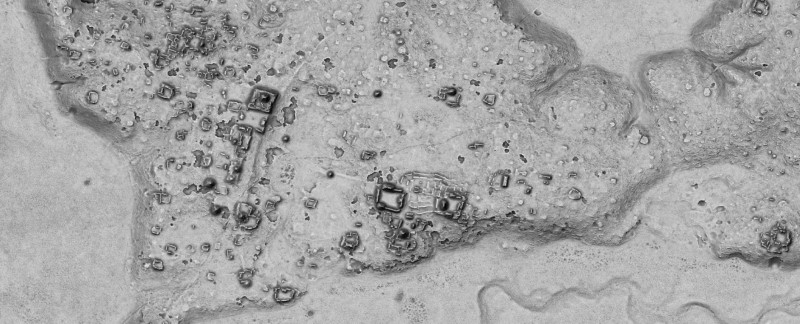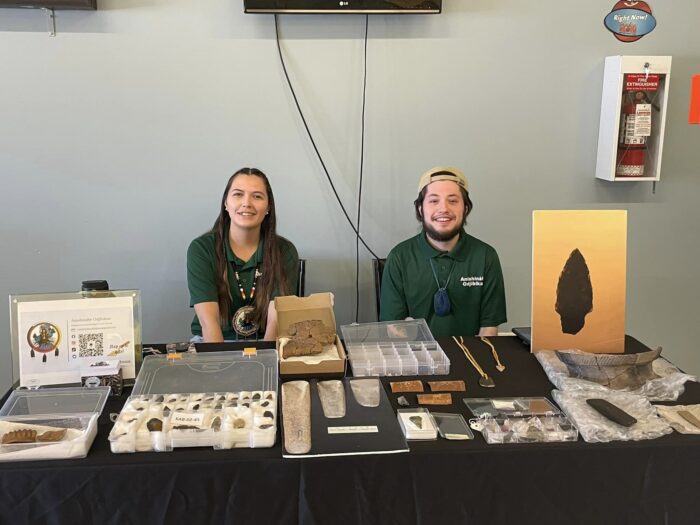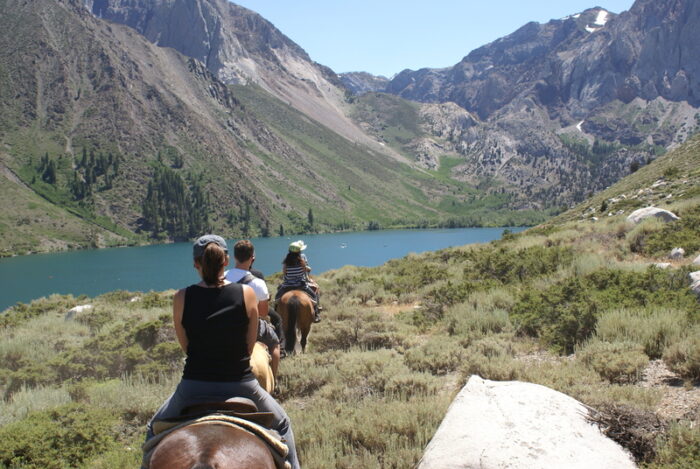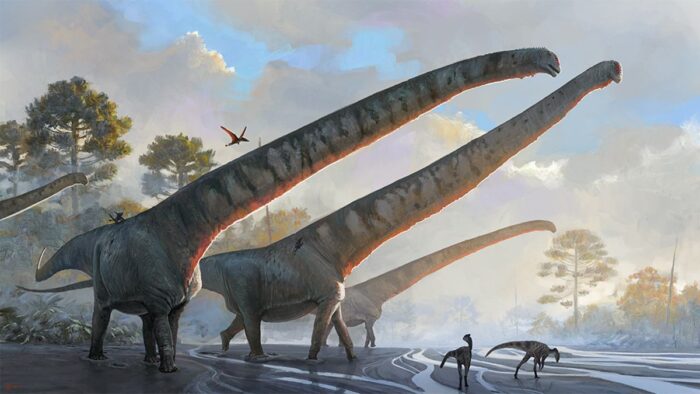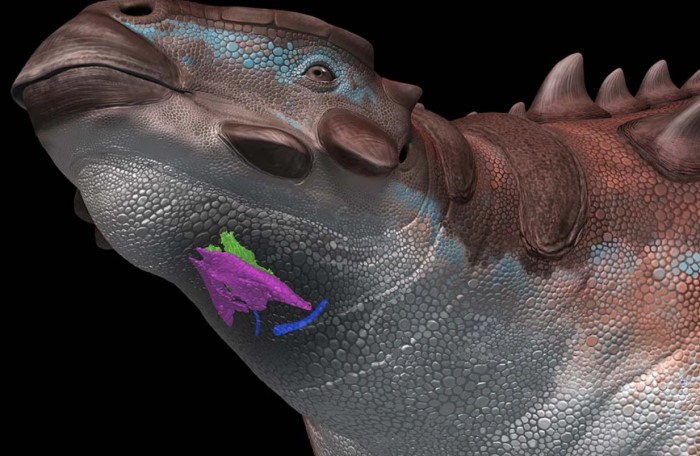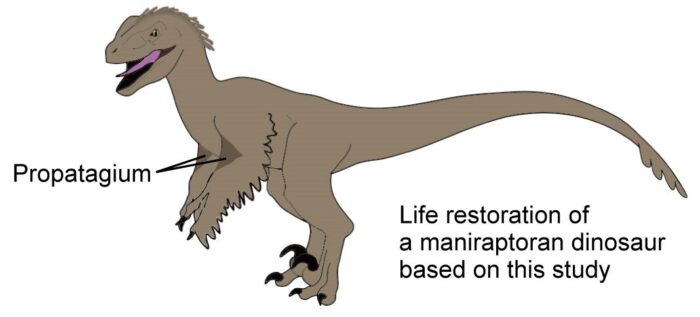What does your name mean? Whether it is the traditional meaning or what your parents were thinking when they named you, there's always a story (or two!) behind why people call you what they do.
And if you're Llukalkan aliocranianus, the story goes like this: The people who named you? They were scared of you.
How else do you explain a name that means 'one who causes fear'?
And if we're being honest, that's a pretty cool thing to be able to say about yourself. When I walk by, everyone trembles with fear! Mwahahahaha!
Ahem.
Of course, exactly how Llukalkan aliocranianus feels about this name, we'll never know. After all, this dinosaur predator lived about 80 million years ago. But thanks to a recent fossil find in Argentina, we're finally at least getting a chance to meet—and name—this impressive animal.
Sort of like an angry elephant?
L. aliocranianus wasn't T. rex sized, but it was still one big creature. It was about the size of an elephant, measuring 5 metres (16 feet) long. And like other predators such as Carnotaurus, it had short forearms, but large, powerful hind legs—this suggests that it was a strong runner and a real match for its prey. It was likely one of the top predators in its habitat.
Another very interesting feature? Thanks to some analysis of the animal's skull, experts are convinced that it had a real advantage over many other animals of the time. Better than average hearing.
Listen closely
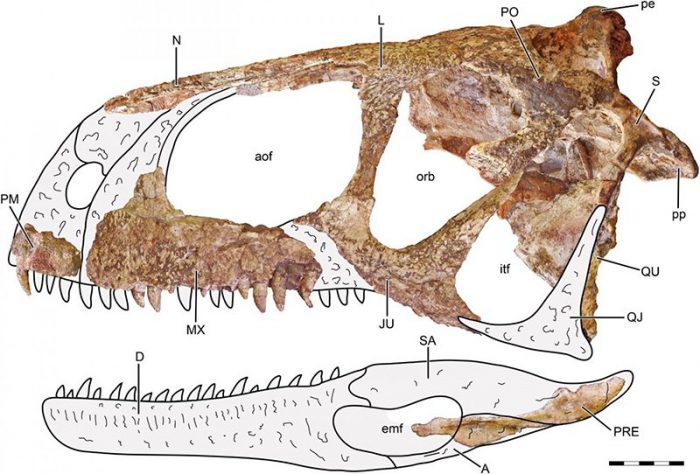
This skull of the L. aliocranianus gave paleontologists clues about its abilities. (Journal of Vertebrate Paleontology)
L. aliocranianus belonged to a group of dinosaurs known as abelisaurids. These carnivores had shorter snouts and jaws than tyrannosaurs, but they also had a unique sinus—or hollow cavity—in their skull that greatly improved their hearing.
How do cavities help hearing? Think about how sometimes it's hard to hear when you have a bad cold. When you have a cold, sometimes mucus clogs up your sinuses and your hearing gets duller. That's because sinuses act as resonance chambers, amplifying sounds.
In the case of L. aliocranianus, its sinus would've meant that it was more than just a dinosaur predator that was terrifying to look at. It was also an animal that could hear where you were. Yikes!
That is one scary dino!
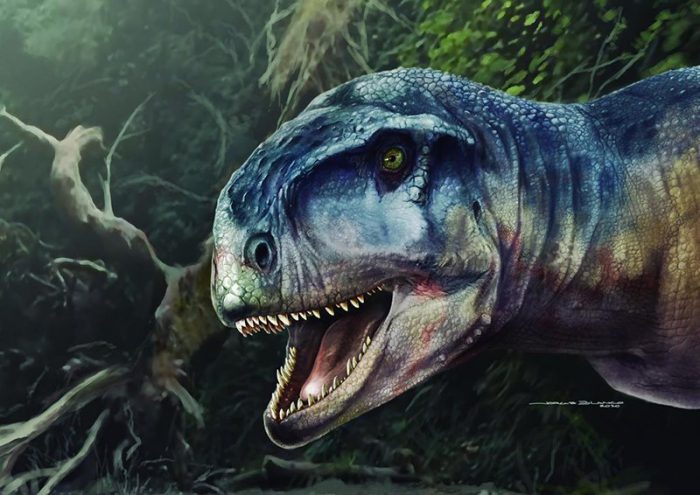 His name means 'One who causes fear.' We feel this is accurate! (Jorge Blanco and Journal of Vertebrate Paleontology)
His name means 'One who causes fear.' We feel this is accurate! (Jorge Blanco and Journal of Vertebrate Paleontology)
